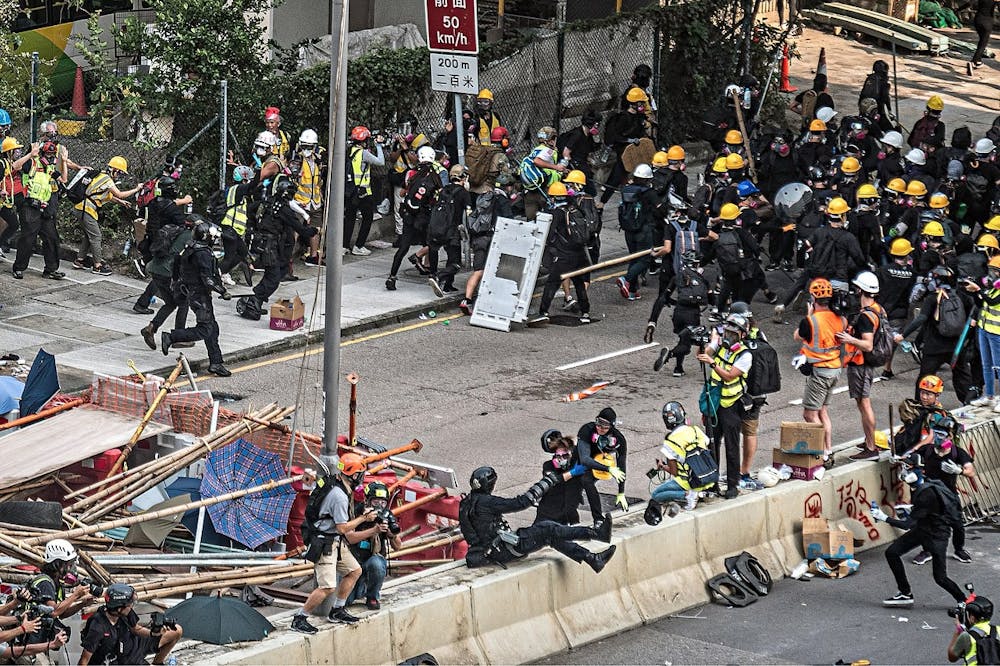Last month in Hong Kong, a policeman fired a close-range shot into a protestor’s gut. That same day, protestors set a 57-year-old man on fire after an altercation. Another police officer was suspended from the force after driving a motorbike through a crowd of protestors. In early October, Apple CEO Tim Cook pulled HKmap.live from the App Store after it was reported by mostly state-run media in China that the app was being used by protestors to target individual police.
The protests that captured the world began in September 2019 in response to a controversial extradition bill that would have allowed those arrested in Hong Kong to be sent to other countries that did not have formal extradition agreements with Hong Kong. The bill, which would have included China on the list of countries, exacerbated fears that the Chinese government would be able to exercise greater control over the semi-autonomous region, which is supposed to remain largely independent from their rule until 2047 under the “one country, two systems” policy.
After three months of protests, that bill was withdrawn in September.
Yet the protests continue, arguably putting Hong Kong in an even greater state of unrest than ever before. Protestors are demanding further reforms, largely as a result of actions taken against them. By responding to the initial protests with suppression and violence, the government has only fueled further chaos that has all but obscured the original issue.
Since their inception, the Hong Kong protests have only escalated in violence and intensity as the region becomes a focal point of global conversation that has not left Princeton untouched. A pro-China post on the hugely popular Facebook page Tiger Confessions (now defunct) garnered a long comment thread of conflicting views in which students debated the merits of the protests and the government’s involvement. Support for the Hong Kong protestors can be found in posters at Frist Student Center, and at least one large sign saying FREE HONG KONG can be seen in a dorm room window.
Regardless of one’s personal views on the ongoing crisis in Hong Kong, it is imperative that the situation in Hong Kong serves as a warning for future conflict. Violence and vengeance are cyclical. They muddy the central issues at hand and prevent progress from being made. The Hong Kong government should never have responded to initially peaceful protests with police violence, as it only prompted a backlash from the protestors that included similarly unacceptable violence.
Hong Kong is far from the only example in which peaceful resolution seems no longer possible. From the Middle East to America, dissatisfaction often boils over into a violence that seems far too sustainable. Many of the issues at hand have decades if not centuries of incredibly complex historical context, a context that is often used as just reason for violent action, both physical and verbal. But we must come to realize that belligerence, no matter how much it is perceived to be justified, cannot be allowed to continue — if it does, the only path for all parties involved is an accumulation of animosity and destruction.
Here at Princeton, protests have taken place on subjects such as the University’s investment portfolio and the new Woodrow Wilson statue. Protestors and administration alike have and must continue to be civil and open to productive conversation.

In an increasingly polarized world, state governments have often been a negative symbol of infighting and suppression. Our leaders must learn to adopt a more moderate and reasonable approach to civil unrest and other issues of the day, and citizens must also follow suit in order for true progress to be made.
Richard Ma is a sophomore from Kirksville, Miss. He can be reached at richardma@princeton.edu.









